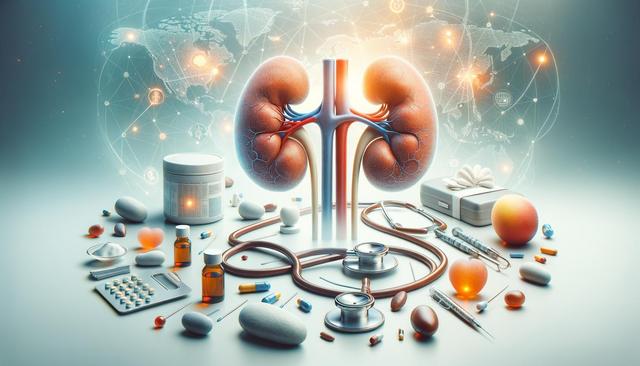Understanding Kidney Disease and Its Impact
Kidney disease affects millions of people worldwide, often progressing silently until it reaches advanced stages. The kidneys play a crucial role in filtering waste, balancing electrolytes, and regulating blood pressure. When their function declines, a person may experience fatigue, swelling, and difficulty concentrating. Chronic kidney disease (CKD) is commonly caused by conditions such as diabetes and hypertension, which damage the delicate filtering units in the kidneys over time. Early detection is vital, as prompt management can slow or even halt the disease’s progression.
There are five stages of CKD, ranging from mild impairment (Stage 1) to complete kidney failure (Stage 5). Recognizing symptoms early and seeking medical evaluation can lead to timely interventions. Regular blood and urine tests help assess kidney function and detect abnormalities. Increased awareness and routine screenings are key steps in caring for your kidneys proactively, especially for individuals with risk factors like family history, high blood pressure, or high blood sugar levels.
Medical Therapies and Lifestyle Modifications
Modern treatment approaches for kidney disease focus on a combination of medical therapies and lifestyle changes. Controlling blood pressure and blood sugar levels is central to slowing disease progression. Physicians often prescribe medications such as:
- Angiotensin-converting enzyme (ACE) inhibitors
- Angiotensin II receptor blockers (ARBs)
- Phosphate binders
- Diuretics
These medications help protect kidney function and manage associated complications like fluid retention and mineral imbalances. In addition to pharmacologic treatment, adopting healthier habits plays a substantial role in managing CKD. Patients are encouraged to:
- Follow a kidney-friendly diet low in sodium, phosphorus, and protein
- Engage in regular physical activity
- Limit alcohol and avoid tobacco
- Stay hydrated while managing fluid intake as needed
Working closely with a nephrologist and a renal dietitian can help patients make informed decisions that support their overall health and kidney function.
Innovations in Dialysis and Transplant Options
For patients with advanced kidney disease, dialysis and kidney transplantation are life-sustaining treatments. Dialysis has evolved significantly, offering more comfortable and flexible options. Patients can now choose from:
- In-center hemodialysis
- Home hemodialysis
- Peritoneal dialysis (a home-based option using the abdominal lining)
These approaches allow individuals to tailor treatment to their lifestyle and preferences, improving quality of life. Technological advancements in dialysis machines, such as portable systems and remote monitoring, have further enhanced patient autonomy and safety.
Kidney transplantation remains an effective and preferred option for eligible patients, offering longer survival and better quality of life compared to long-term dialysis. Living donor transplants, where a healthy individual donates one of their kidneys, have increased in popularity due to improved outcomes and reduced waiting times. Ongoing research in transplant immunology is also enhancing graft survival and minimizing the need for lifelong immunosuppression.
Monitoring and Managing Complications
Kidney disease often presents with a range of complications that require ongoing monitoring and management. These may include:
- Anemia due to decreased erythropoietin production
- Bone and mineral disorders from disrupted calcium and phosphorus balance
- Electrolyte imbalances such as high potassium levels
- Increased cardiovascular risk
Routine lab tests and imaging studies allow healthcare providers to track changes and adjust treatment plans accordingly. Managing these complications is essential not only for preserving kidney function but also for preventing hospitalizations and improving patient well-being. Patients may receive iron supplements, vitamin D analogs, or medications to manage cholesterol and blood pressure as part of a comprehensive care plan.
Patient education plays a critical role in helping individuals understand and manage their condition. Many healthcare providers now offer CKD education programs that empower patients to take charge of their health through knowledge and self-care practices.
Future Directions in Kidney Disease Treatment
Ongoing research continues to uncover promising therapies for kidney disease. Several experimental treatments and clinical trials are exploring ways to halt or reverse kidney damage. Some of the most promising areas include:
- Stem cell therapy for regenerating kidney tissue
- Novel drugs that target inflammation and fibrosis
- Bioartificial kidneys under development for implantation
- Genomic medicine tailored to individual risk profiles
These innovations offer hope for more personalized and effective treatments. Additionally, advancements in digital health tools, such as wearable devices and telemedicine platforms, are making it easier for patients to monitor their health and stay connected with care teams.
As science progresses, the goal is to detect kidney disease earlier, treat it more effectively, and ultimately reduce the need for dialysis or transplantation. Collaboration between researchers, healthcare providers, and patients is key to driving innovation and improving outcomes for people living with kidney disease.
Conclusion: Supporting Long-Term Kidney Health
Caring for your kidneys requires a proactive and informed approach. With the evolution of therapies and ongoing research, individuals with kidney disease have access to more effective treatment strategies than ever before. From early detection and lifestyle adjustments to advanced dialysis and transplant options, each step plays a vital role in preserving kidney function and enhancing quality of life. Staying engaged with your healthcare team, attending regular check-ups, and making thoughtful health choices are essential in managing kidney disease over the long term. Through continued awareness and innovation, the outlook for kidney health continues to improve for many individuals worldwide.




Leave a Reply